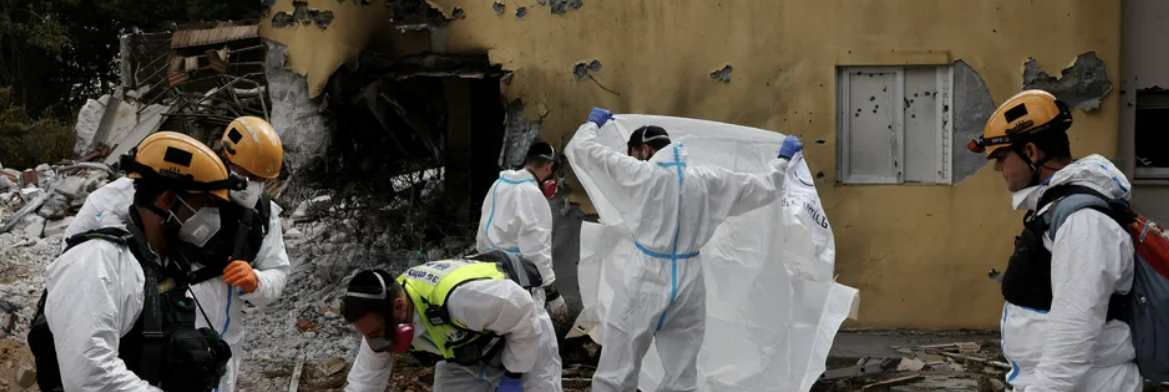“I knew right away that sexual violence was part of the events of October 7, but obviously, I could not have known the extent of the cruelty that Hamas engaged in,” says Prof. Ruth Halperin-Kaddari, who served for 12 years on the UN Committee on Elimination of All Forms of Discrimination Against Women.
Halperin-Kaddari now feels “completely betrayed” by the international women’s rights organizations with whom she has worked for years, for their failure to condemn – or even recognize – the rape, kidnapping and other atrocities committed by Hamas terrorists against Israeli citizens on October 7.
In conversation with Haaretz Weekly host Allison Kaplan Sommer, Halperin-Kaddari, a member of the newly formed Civil Commission on Hamas’ October 7 Crimes Against Women and director of the Rackman Center for the Advancement of the Status of Women at Bar-Ilan University, explains that “unlike any previous incidents of ‘conflict-related sexual violence,’ as the UN calls it, the Hamas terrorists had body cameras and they filmed their actions. They broadcast it both to the families of the victims and on social media, so the horrific footage emerged right away.”
The UN-affiliated groups Halperin-Kaddari has worked with were founded with the mission of “protecting women from violence, to champion women’s rights, and to acknowledge when harm is done to women. And now, when we Israeli women are faced with the most horrible occurrence of ‘conflict-related sexual violence,’ there is complete silence.
“By being silent here, they’re not only failing us Israeli women, they’re undermining the whole system. They lose credibility. By not referring to the ongoing crime of holding hostages, they are in fact legitimizing [it] – and you might even say that they’re complicit in this situation of hostages being kept without a word about their whereabouts, without a word about their condition. They are also providing ammunition to all those who are already engaged in a denial campaign.
Also on the podcast, domestic violence advocate Lili Ben Ami, founder of the Michal Sela Forum, expresses her deep concern over the dramatic expansion of Israelis’ ability to obtain personal weapons in a campaign initiated by National Security Minister Itamar Ben-Gvir.
Her organization, she says, “is now receiving calls every day from worried women and domestic violence survivors” that their abusers will now get access to a firearm. When her group looked into the matter, she tells Haaretz Weekly, they found that the distribution plan did not contain a screening mechanism that would prevent men with criminal records related to domestic violence from obtaining a gun.









